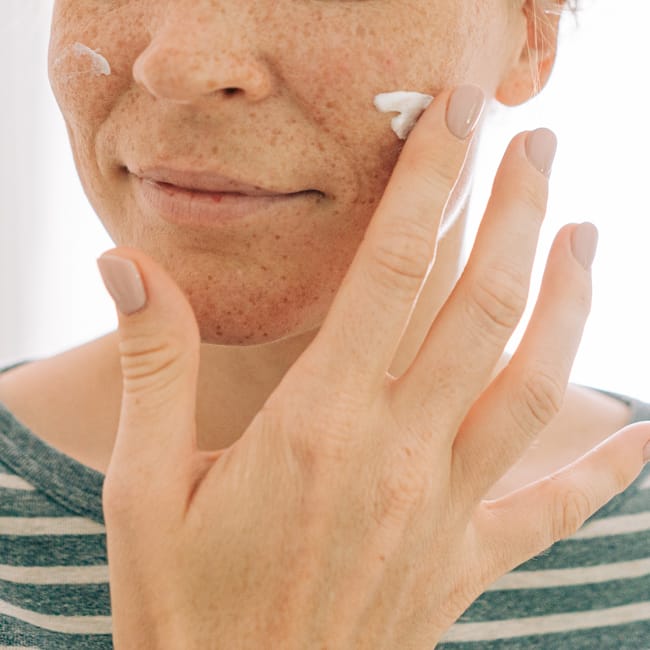This article has been updated since its initial publish date to include more expert insight.
If you want glowing, healthy skin, then it’s important to be aware of the products and ingredients you’re using on a daily basis, and what they contain. Unfortunately, some popular skincare items may be doing more harm for your facial skin than good. Hydrating your face is key for that desired dewy, radiant and youthful look, and removing dehydrating products is one step closer to the ideal glow.
Keep reading to find out what surprising products in your cabinet might be wreaking havoc on your complexion, and what to use in their place. We spoke with dermatologists and skincare aficionados to find out which three common products and ingredients you should avoid in order to prevent breakouts, dry, flaky patches, and premature wrinkling.
We received great tips, suggestions and insight from Dr. Anna Chacon, MD, board-certified dermatologist and writer at My Psoriasis Team and Dr. Angela Casey, M.D., board-certified dermatologist and founder of youth skincare line Bright Girl.


1. Alcohol-Based Toners
Alcohol has been shown to irritate sensitive skin and make it even drier, Chacon notes. Often found in toners, it can "also cause flaky patches on your face if you have dry skin."
If your skin is naturally on the drier side, it's imperative to "avoid products that contain alcohol as an ingredient," she stresses. Chacon adds that "dry and aging skin can be extremely sensitive," and will suffer most when using this kind of product.

This is because "alcohol-based products make the skin prone to irritations, rashes, and even eczema." Alcohol in skincare products may have a more serious effect if you have more textured skin, she warns, possibly "disrupting your skin's barrier."
A damaged skin barrier is at risk of "excessive drying since moisture escapes skin," and this results to an "entry of irritants causing skin to inflame" and develop redness." (No thanks!) Instead, you can pick up an alcohol-free toner anytime, she says.

2. Cleansers With Sodium Lauryl Sulfate (SLS)
Sodium lauryl sulfate (often abbreviated as SLS) is an ingredient found in many face washes that helps it create a soapy, foamy lather, Chacon explains. "It's also known to irritate sensitive skin and cause itchiness or redness for many people," she notes. If you have dry skin and often use products with SLS in them, she says to "try switching to something gentler like coconut oil instead."
A much better choice for a face wash, Casey says, is one that is "pH-balanced and gentle." She advises using this type of cleanser every morning and night using lukewarm water. "This step refreshes the skin and removes any sweat and debris that may have accumulated," she explains.

After cleansing your face at night, Casey has a tip to wake up with more hydrated-looking skin: use a hyaluronic acid serum before you hit the sheets. "When we apply an effective skincare product, such as hyaluronic acid, at night, we will see optimal efficacy of the product," she says. "Because our skin is so dependent on water and hydration to function properly, it is essential for the skin to stay hydrated in order to stay strong and perform its protective functions."
She adds that hyaluronic acid applied to the skin at night "penetrates into it, and then continues to attract water towards it, allowing for better hydration of the skin." Skin that is well-hydrated stays "strong, resilient, and healthy," she points out.

3. Fragranced Face Washes And Lotions
Anything that is applied to your face should be fragrance-free if your goal is to prevent acne, premature wrinkling and excessive dryness, Chacon says.
"Fragrance can cause irritation and allergic reactions in some people, including those with asthma," she points out.

You might not even realize that the products you use daily are fragranced, so she recommends double checking each bottle before purchasing it to ensure there are no fragrances added.
"Make sure any skincare products or face washes that you use don't contain fragrance as an ingredient," she notes. Good to know!


























